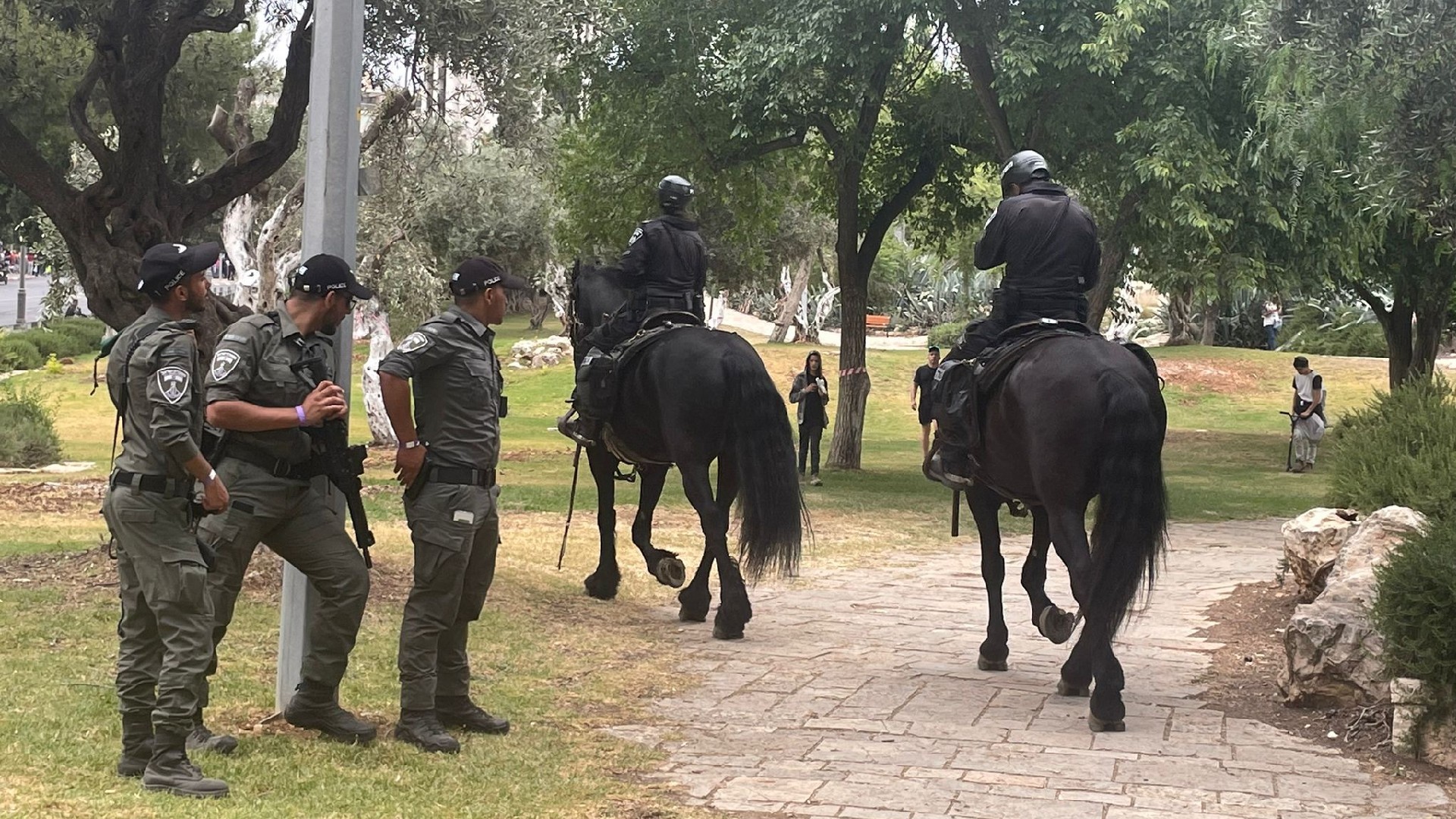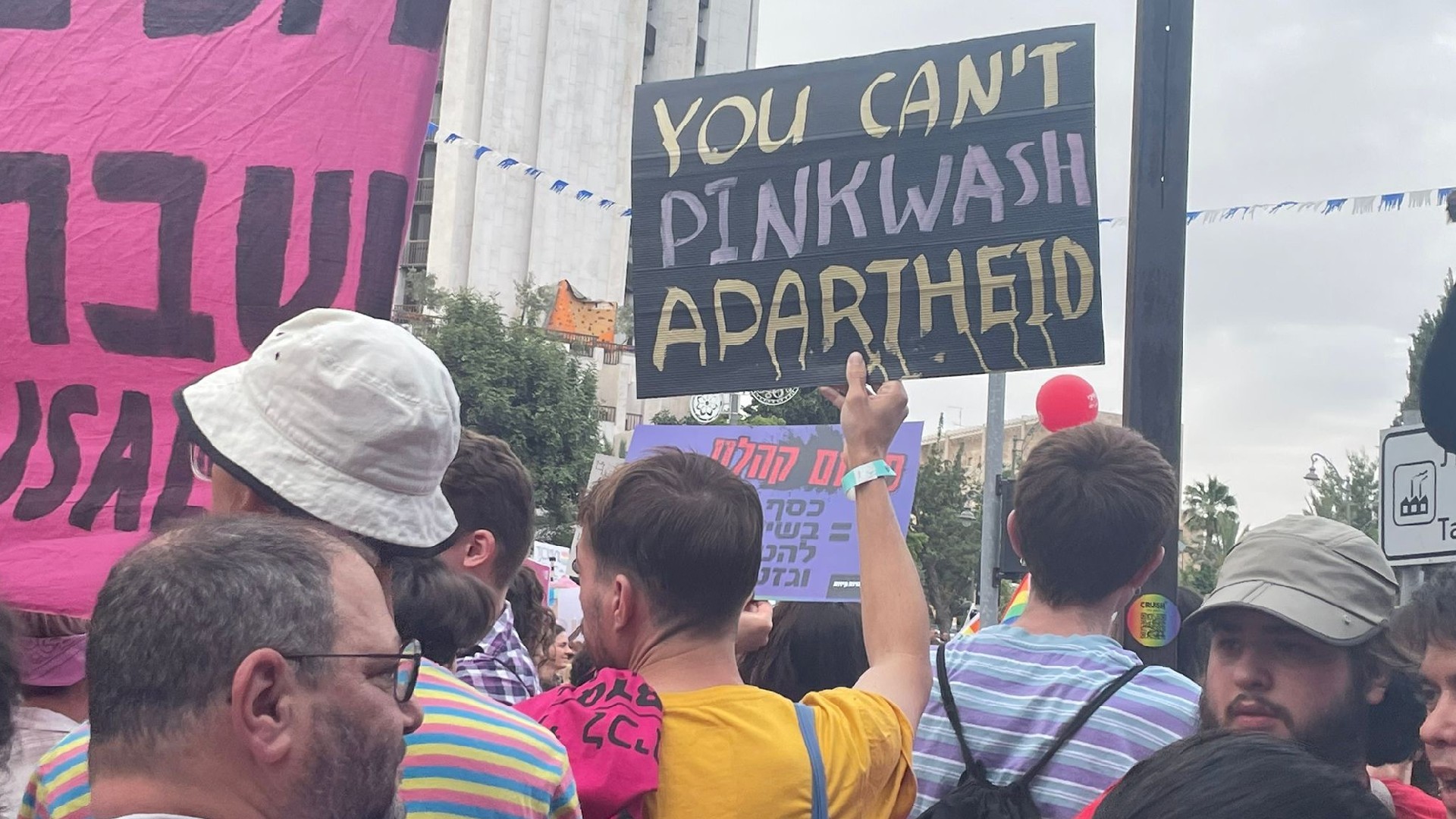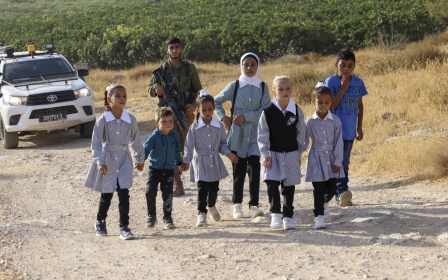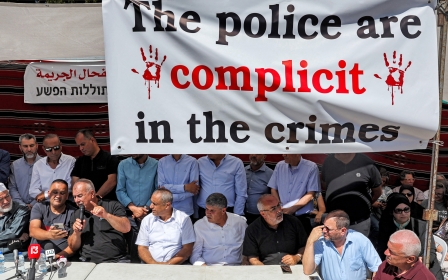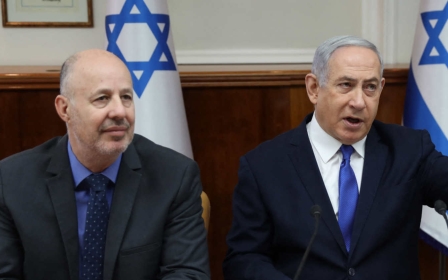Israel: Fear from far-right policies overshadows Jerusalem Pride parade
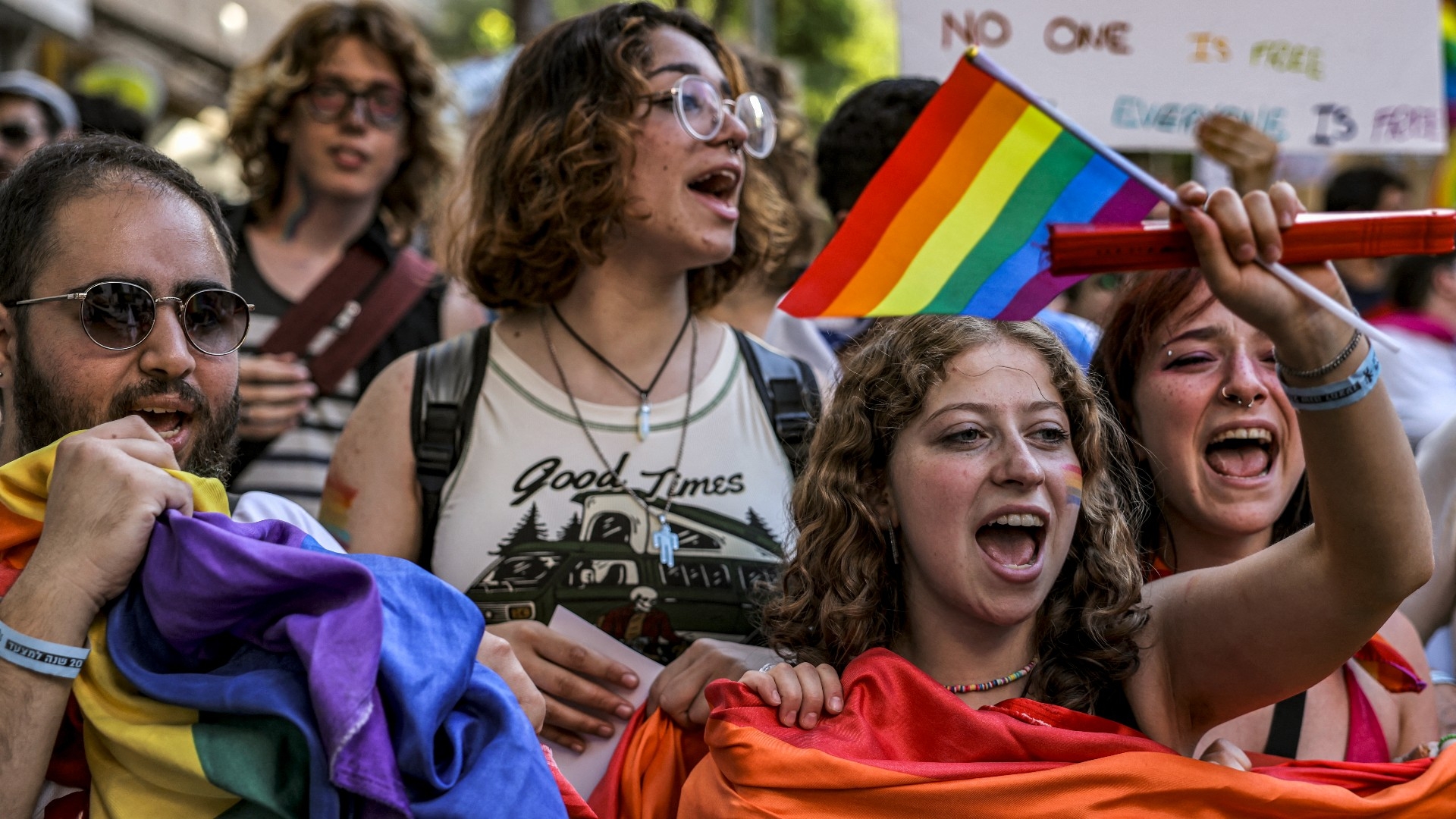
The Jerusalem Pride Parade kicked off under tight security on Thursday, for the first time since the election of Israel's most far-right government, which includes several anti-LGBT figures.
Around 2,000 Israeli security officers, including undercover troops, were deployed along the main route and nearby areas where the far-right Lehava group organised a counter-demonstration.
Noa Sattath, executive director of the Association for Civil Rights in Israel, who is attending the parade, said it was symbolic of the current polarisation of Israeli society.
"There's a polarisation in Israel from a liberal democratic public to a fascist, racist and homophobic public, which is growing in size," Sattath, who is a married lesbian, told Middle East Eye.
"Jerusalem is a city that has a lot of tensions, and the parade embodies these tensions in a very clear way."
Lehava is led by far-right figure Bentzi Gopstein, an ally of National Security Minister Itamar Ben-Gvir and a former candidate for his Jewish Power party.
Ben-Gvir, and Finance Minister Bezalel Smotrich, have long opposed the Pride march and have been actively involved in counter-protests.
They both participated in the 2005 "beast parade", in which counter-demonstrators placed farm animals along the route in an attempt to compare homosexuality with bestiality.
Also in the current government is Avi Maoz, head of the anti-LGBT Noam party, who supports gay conversion therapy and has described the march as "a promiscuous abomination".
He also objects to allowing women to serve in the military and calls for the chief rabbinate to serve as the “fourth branch of government”.
"The Israeli political system has always been homophobic, like in the US, but the difference is that America doesn't have someone like Avi Maoz in the government," said Sattath.
"This is Maoz's main ticket. He hates Arabs and women, but mainly he hates the gay community."
She said that this is the first time a party whose main agenda is anti-gay has participated in government.
"We are worried about our children and our families. There's anxiety all around. These times are terrifying," she added.
Arrests ahead of march
The parade, inaugurated in 2002 by Jerusalem Open House for Pride and Tolerance, draws in thousands of supporters each year, as part of several events across Israel for Pride month.
Critics and pro-Palestine campaigners have accused Israel of using the Pride march and LGBT issues to "pinkwash" its occupation and human rights abuses against Palestinians.
Police announced on Thursday that three people were arrested for extreme anti-LGBT statements ahead of the Jerusalem march, including a man in his 60s who was detained after writing a post encouraging people to murder participants in the march.
Israeli social media watchdog FakeReporter issued a report this week outlining messages inciting violence sent on Telegram channels affiliated with Lehava.
Messages in the groups included: "May all the marchers die from machine gun fire", "Maybe Iran’s bomb will restore order here", and "if someone who defines themselves as gay comes close, they will feel pain like they have never experienced”.
In 2005, ultra-Orthodox extremist Yishai Schlissel went on a stabbing rampage during the march, wounding three people. He was convicted and sent to prison for 10 years.
Just days after being released in 2015, Schlissel attacked marchers again, killing a child and wounding six people. He is now serving a life sentence.
Schlissel’s brother, who was arrested on suspicion of carrying out an attack in 2016, was represented by Ben-Gvir, as his defence attorney.
As a result of Ben-Gvir's connection with anti-LGBT figures, Jerusalem Open House wrote to Prime Minister Benjamin Netanyahu last weekend, raising concerns over his involvement in the event.
Michal Goren*, a lawyer and human rights activist in her 50s, said she feared this could be the last Pride parade.
"It's just a matter of time - and likely not much time - before laws are enacted that, for instance, deem homosexual relationships to be forbidden under Jewish law, with violations punishable by imprisonment or citizenship revocation, or both," she said.
"Within this context, Pride parades could be deemed injurious to the sensibilities of the Jewish public, risking the spiritual existence of the Jewish people."
*Name has been changed to protect privacy
Middle East Eye propose une couverture et une analyse indépendantes et incomparables du Moyen-Orient, de l’Afrique du Nord et d’autres régions du monde. Pour en savoir plus sur la reprise de ce contenu et les frais qui s’appliquent, veuillez remplir ce formulaire [en anglais]. Pour en savoir plus sur MEE, cliquez ici [en anglais].


